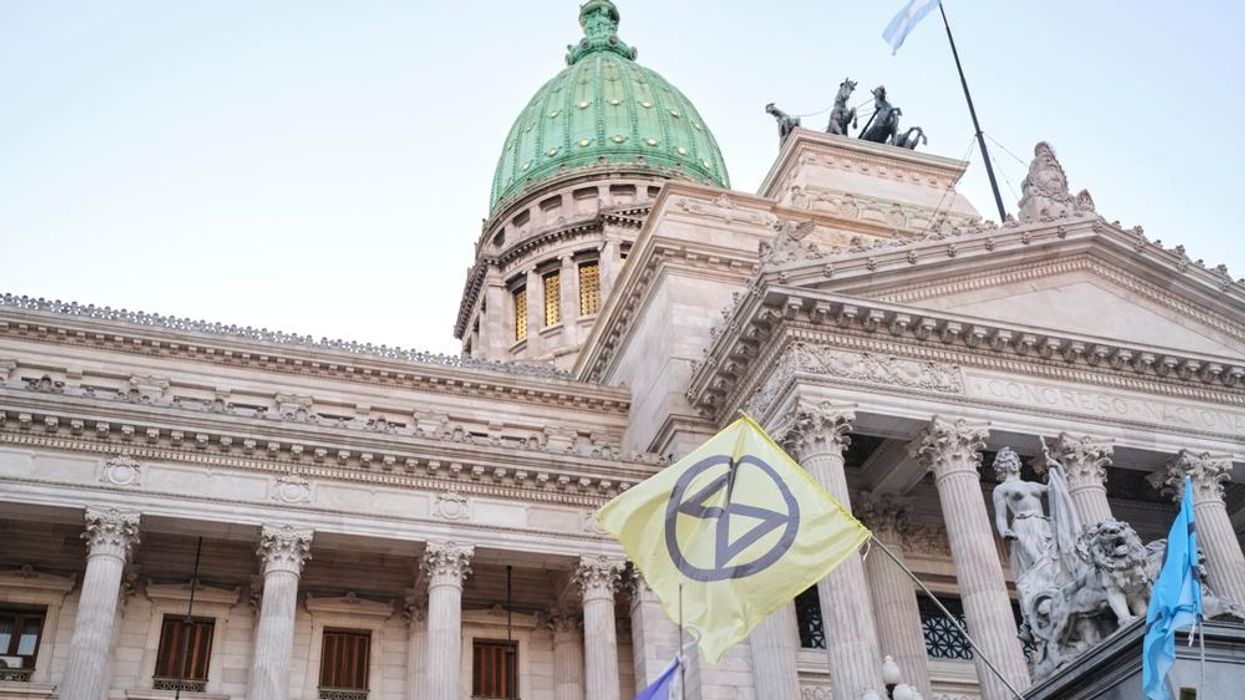Following recent COP27 negotiations where wealthy nations created a "loss and damage" fund for low income countries impacted by climate change, Congress has pledged $1 billion in aide, falling drastically short of President Biden's promised $11.4 billion per year.
The money is just a fraction of the $1.7 trillion government spending package that legislators will hold a vote on within the week. While Democrats wanted $3.4 billion allocated to developing nations, Republicans killed the proposal, calling it “radical environmental and climate policies."
Democratic Senator Edward J. Markey of Massachusetts blamed Republicans’ “refusal to engage on climate change in any meaningful way” for the small amount.
“Congress just bankrolled a defense bill that was $45 billion bigger than the president requested, but we failed to provide a penny to meet our commitments to the Green Climate Fund — a step that would truly help us defend our country and our planet from chaos and instability,” he said via The New York Times.
The money will fund low-income countries in their transitions to renewable energy systems, and will also provide relief aid for damages done by natural disasters, which have been intensifying due to rising global temperatures.
At the COP27 summit in Egypt this year, Biden pledged that the United States would provide $11.4 billion in aid, which the current amount of $1 billion falls nowhere near.
“The climate crisis is hitting hardest those countries and communities that have the fewest resources to respond and to recover," Biden told fellow world leaders.
Despite their failure to secure more funds, Saloni Sharma, a spokeswoman for the White House National Security Council, insisted that the Biden Administration is making the $11.4 billion goal a top priority.
“Over the past several weeks and throughout the past weekend, members of the administration worked to secure funding in [financial year 2023] that puts us on a path to achieving this goal,” she said. “We will continue to work with Congress to make achieving this goal in [financial year 2024] a reality.”
But Mohamed Adow, the founder and director of Power Shift Africa, a group that advocates against climate change across the continent, called the outcome "hugely disappointing."
“The U.S. is the world’s largest historical emitter, and on a per-capita basis the U.S. remains one of the biggest carbon polluters,” he said. “The U.S. has promised much in terms of climate finance over the years but it’s failed to deliver on many of these promises."
- Wealthy Nations Create Fund for Climate Change Damages ›
- Shocker, Most Middle Schoolers Learn Next to Nothing About Climate Change ›
- How Christians View Climate Change ›
- Climate Change Disproportionately Impacts Latino Communities ›
- How Women of Color Are Bearing the Brunt of Climate Change ›
- How Climate Change is Impacting Tornadoes ›
- How Climate Change Leaves Women at Risk of Domestic Violence - Advocate Channel ›
- Current Congress Is Third Oldest in United States History - Advocate Channel ›
- The Ozone Will Be Repaired Within Decades, UN Report Finds - Advocate Channel ›



















































